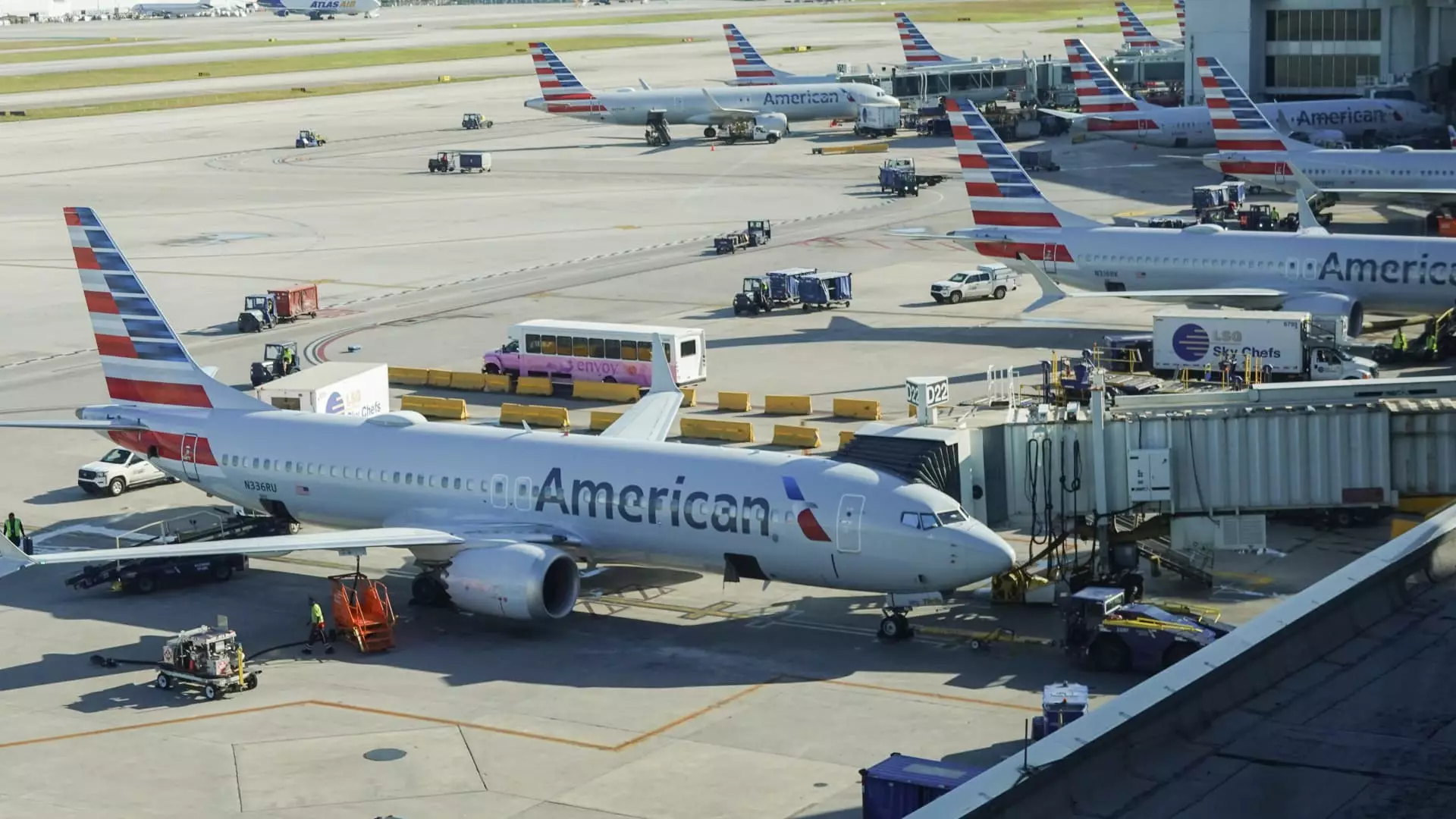On Tuesday morning, American Airlines faced a significant setback when technical problems grounded all its U.S. flights, just as the airline industry braces for a surge in holiday travel. Although the ground stop, which lasted less than an hour, was lifted by 7:55 a.m. ET, the disruption served as an unwelcome reminder of how fragile airline operations can be, especially during peak travel periods. While such delays may seem minor in the grand scheme of things, they carry the potential to ripple through an entire day of air travel, affecting countless passengers.
American Airlines reported that the cause of the ground stop was related to a platform operated by a third-party vendor, underscoring the industry’s growing reliance on external technology providers for critical operations. This technical glitch is particularly concerning, as it is associated with essential data like an aircraft’s weight and balance, which are crucial for safe flight departures. Given the nature of air travel, even temporary discrepancies in this type of data can derail operations and lead to cascading delays. The airline later issued a statement of apology, acknowledging the inconvenience caused to travelers.
In an efficient move to manage the situation, American Airlines proactively requested a ground stop from the Federal Aviation Administration (FAA). Ground stops are standard protocol that airlines utilize to mitigate the chaos often associated with unanticipated issues. When flights are halted at their departure locations, it prevents overcrowding at destination airports, which might otherwise struggle to accommodate an influx of planes and stranded passengers. The FAA’s role in this incident reinforces the importance of collaboration between airlines and regulatory bodies during operational challenges.
As the holiday season approaches, airlines typically expect heightened travel demand, and the timing of this incident couldn’t have been worse. With American Airlines operating a reduced schedule on Christmas Eve, any disruption—no matter how brief—could aggravate an already complex travel environment. Notably, American did not experience any cancellations associated with the technical issue, which is a testament to the airline’s ability to recover swiftly. However, recent history highlights how fragile airline operations can be, drawing comparisons to past major disruptions like Southwest Airlines’ operational meltdown during the 2022 holiday season and Delta Air Lines’ struggles following a significant technology outage.
The latest incident raises salient questions about the state of technology within the airline industry. As systems become increasingly interconnected and dependent on third-party vendors, the need for robust, reliable infrastructure becomes more critical. Airlines must invest not just in their own operations, but also ensure that their partners are equally equipped to handle the pressures of modern air travel. Only through enhanced reliability and systemic robustness can airlines mitigate the risks associated with operational disruptions and enhance the travel experience for passengers during busy travel periods.

